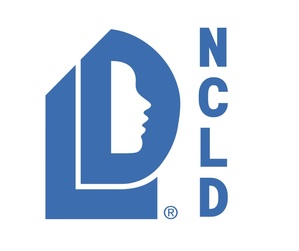
Majority Of Americans Misunderstand The Basics Of Learning Disabilities
National Center for Learning Disabilities Announces The State of Learning Disabilities Report (Third Edition, 2014) Examining Public Perceptions for the First Time
NEW YORK, Feb. 18, 2014 /PRNewswire-USNewswire/ -- The National Center for Learning Disabilities (NCLD) today released the third edition of its State of Learning Disabilities report. The report captures data about the 2.4 million students (5% of our nation's school-age population) whose learning disabilities (LD) have been formally identified, and provides a critical lens through which to understand and address the needs of the additional 15% of students with unidentified and unaddressed learning and attention issues.
This report is an essential resource for anyone who is concerned about the one in five children, adolescents and adults who are impacted by learning and attention issues, whether in school, at home and or in the workplace.
"Stigma, underachievement and misunderstanding of LD continue to be stubborn barriers for parents and children to overcome," says James H. Wendorf, NCLD's executive director. "The data in this new report reveal that, left unaddressed, as many as 60 million individuals risk being left behind, burdened by low self-esteem, subjected to low expectations and diminished in their ability to pursue their dreams."
The 2014 State of Learning Disabilities report is more than a collection of facts and numbers. It tells a story about the realities of LD in society today, including new sections about public perceptions and the impact of LD on post-secondary education and employment. Also included is a section that identifies emerging issues for which reliable data are urgently needed.
Dr. Sheldon H. Horowitz, NCLD's director of LD resources and co-author of this report, states, "While some progress has been made, the hurdles faced by the LD community remain daunting." Citing from the newly added "public perceptions" section of the report, Dr. Horowitz offers the following findings:
- Up to 1/3 of people inaccurately attribute LD to excessive time watching TV, poor diet or childhood vaccinations; 1/2 of people surveyed think it's just laziness
- 7 out of 10 people surveyed mistakenly link LD with intellectual disabilities and autism spectrum disorders
- 1 in 3 parents report deep feelings of isolation, stress, anxiety, guilt and pessimism regarding their child's learning and attention issues
"This report should be a call to action for parents, school leaders and policy makers to take steps to ensure that every individual who struggles with learning and attention issues is provided the opportunity to graduate from high school, live an independent life and contribute to society in the most meaningful ways."
Dr. Stevan Kukic, NCLD's director of school transformation, states that "one of the biggest challenges we face is overcoming the persistent achievement gap for all students with learning and attention issues in reading and math, with even more dire results for students with identified learning disabilities." He goes on to say that "the implication of the data in this report go beyond any specific population. Our challenge is to use data to transform schools in ways that benefit all students, all parents, all teachers, all administrators. The key to solving the student achievement gap is implementing evidence-based practice with fidelity."
Lindsay Jones, NCLD's director of public policy and advocacy, states, "The data presented here give advocates and policy makers around the nation marching orders to increase awareness of the challenges that individuals with learning and attention issues face in schools and the workplace and develop solutions to ensure that each individual reaches their potential."
To access The State of Learning Disabilities report, go to www.LD.org/StateofLD.
About NCLD
For more than 35 years, the National Center for Learning Disabilities (NCLD) has committed our passion and expertise to empowering parents, helping to transform public schools and advocating for families and children challenged by learning and attention issues. We've improved millions of lives and we're now one of the nation's leading authorities on learning issues. For our transparency, accountability and sound financial management, NCLD has earned Charity Navigator's highest rating—four stars. For more information, please visit NCLD.org and follow us at facebook.com/LD.org and on Twitter at @LDorg.
SOURCE National Center for Learning Disabilities






Share this article